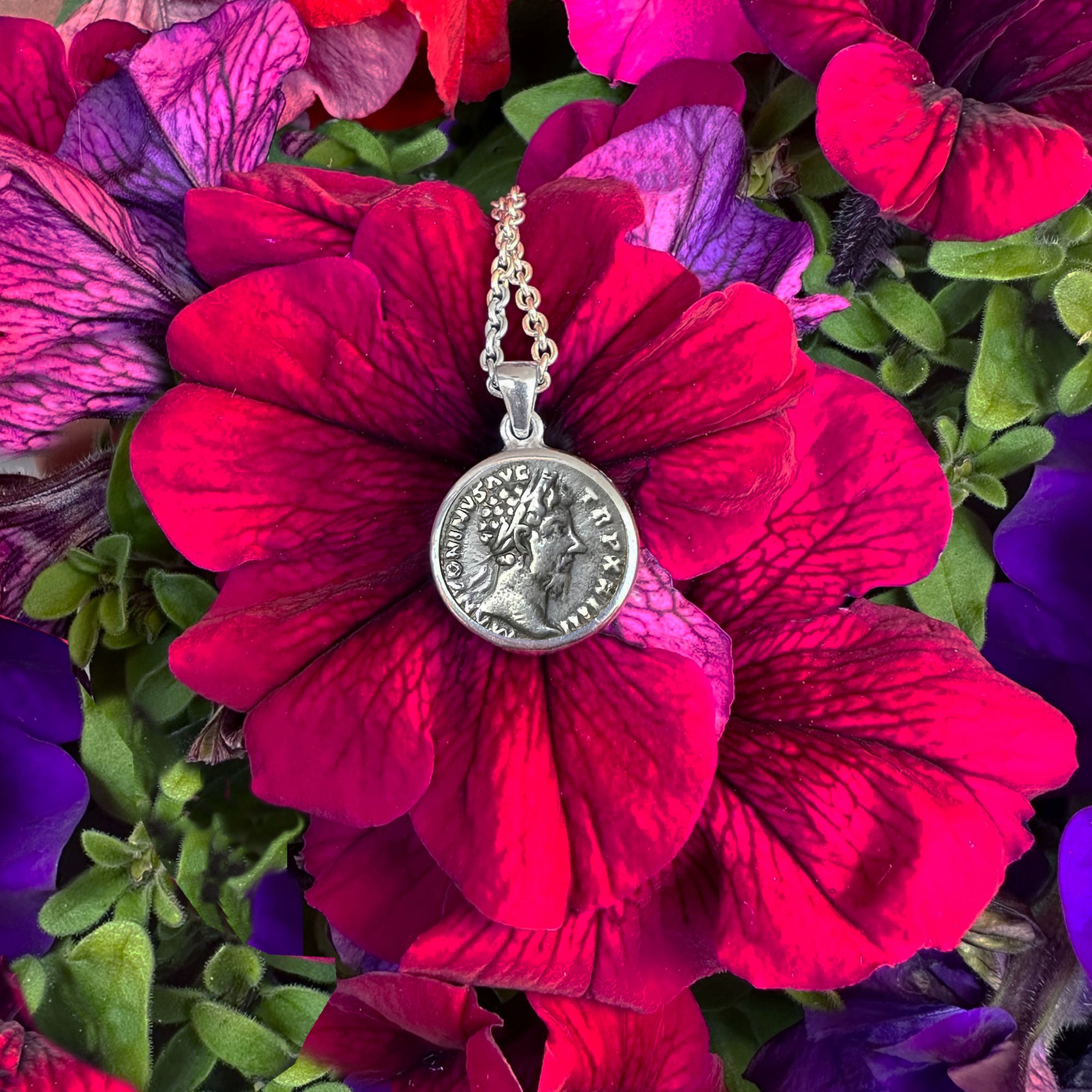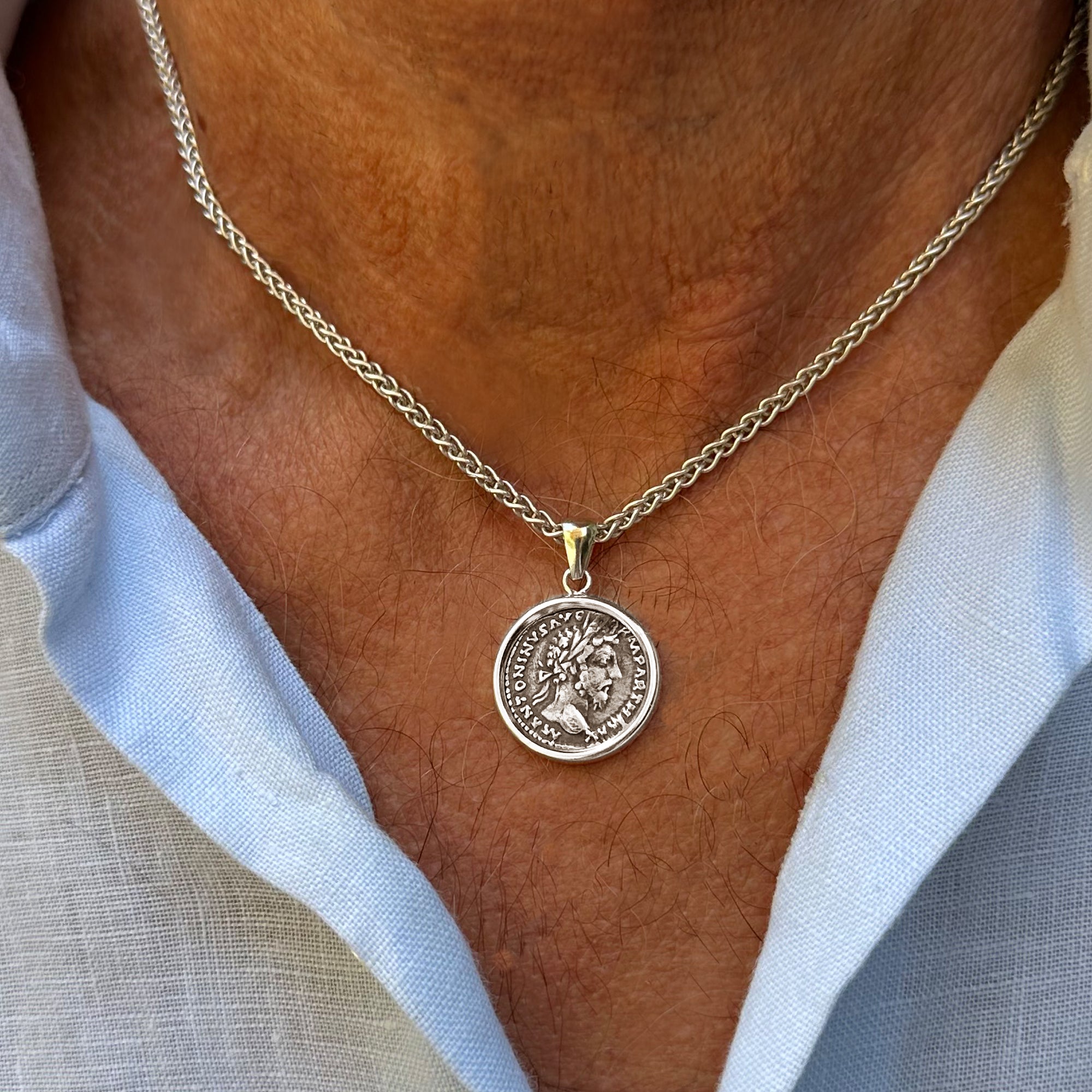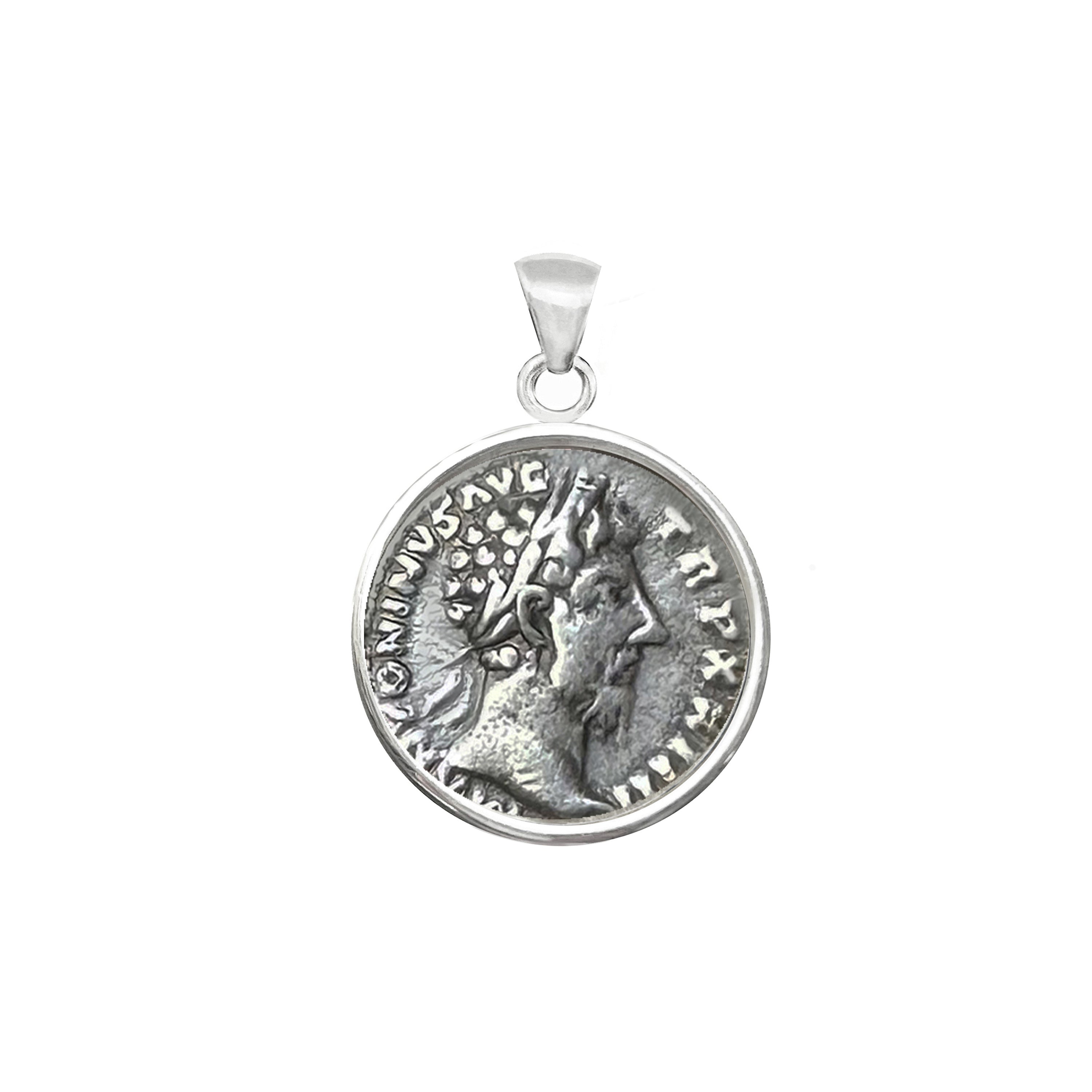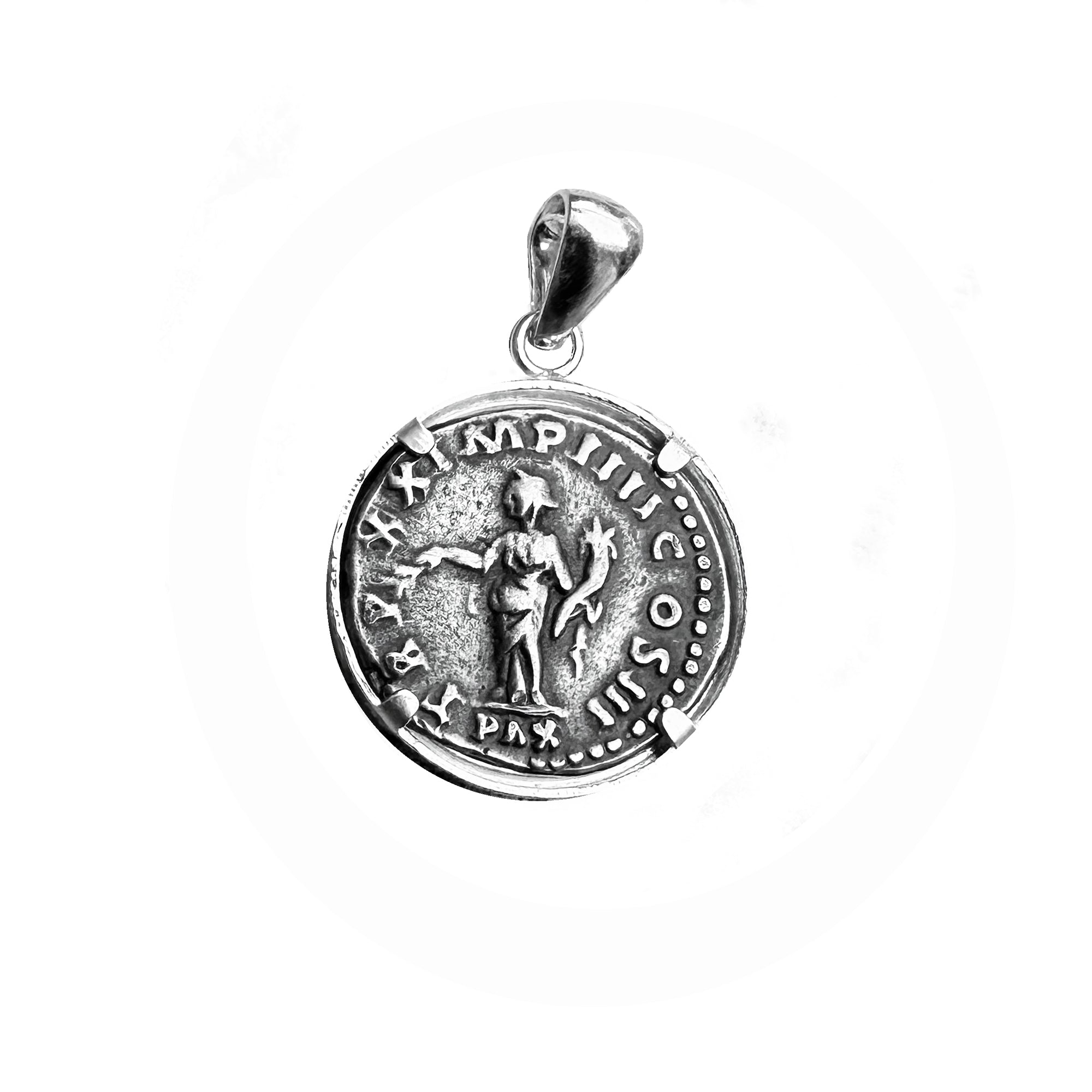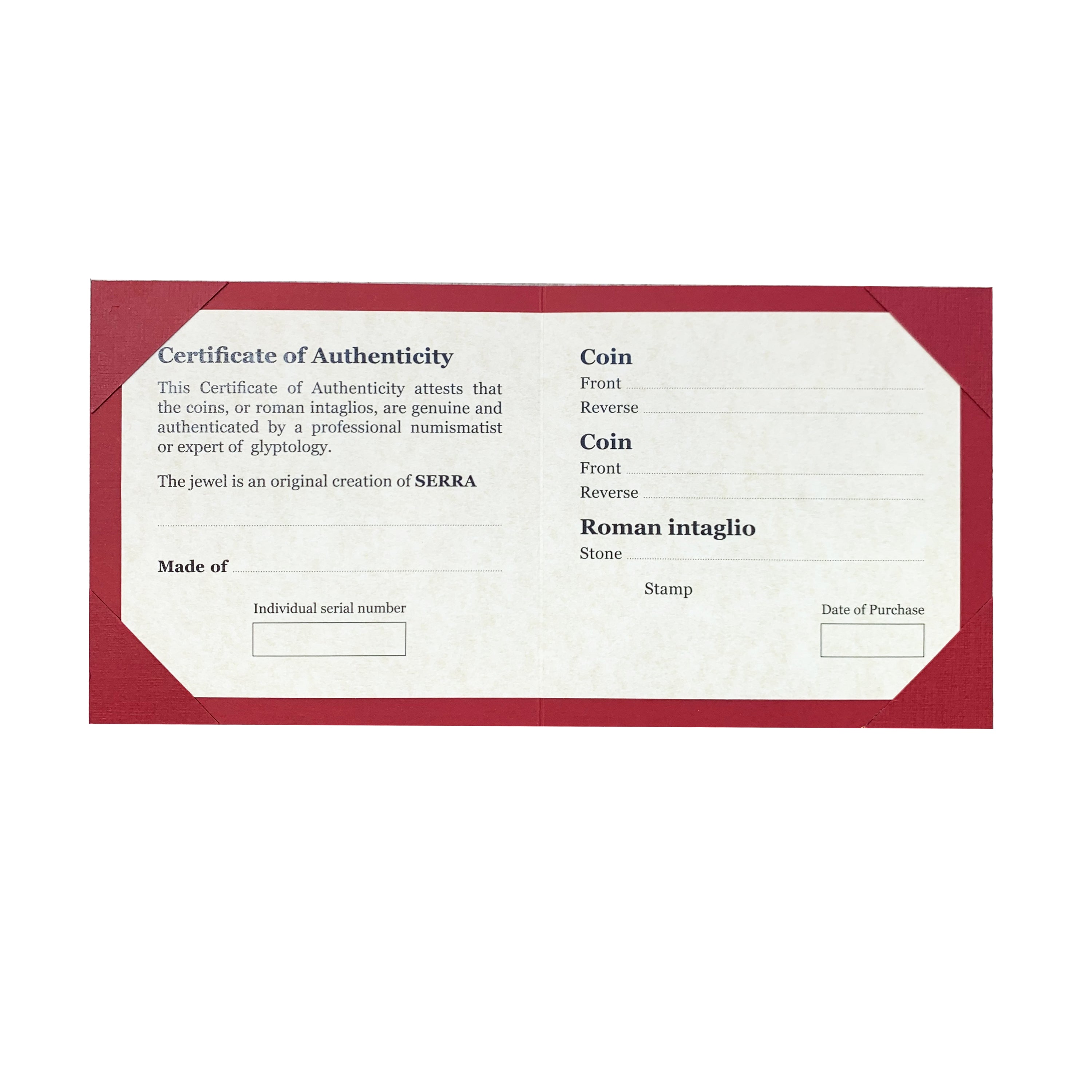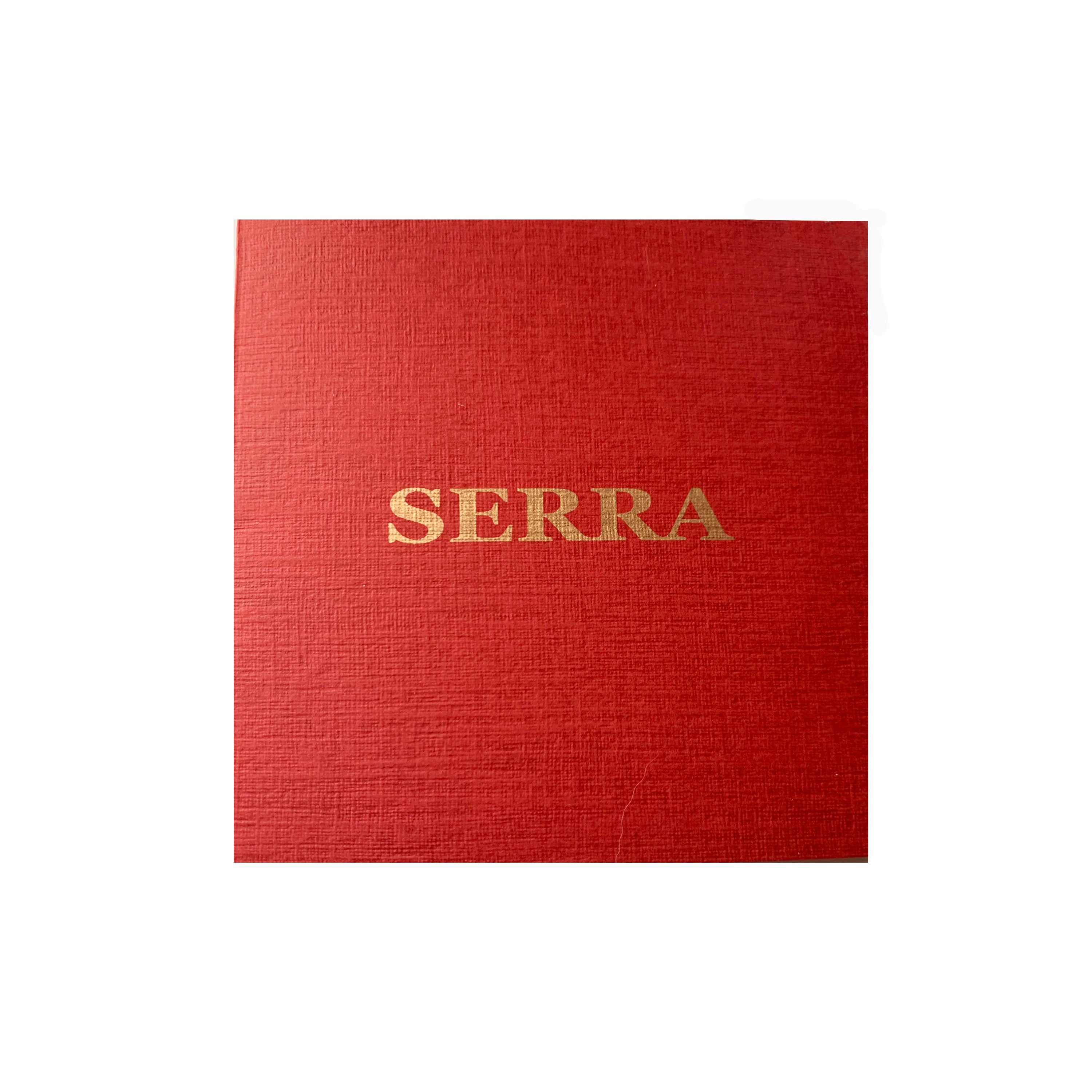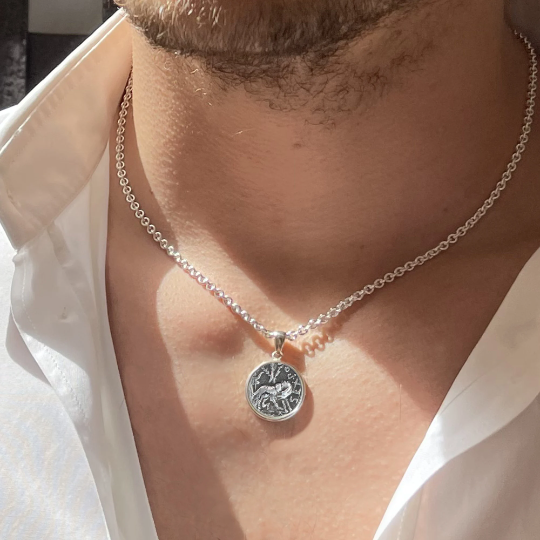EMPEROR MARCUS AURELIUS Genuine Ancient Roman Coin 2nd cent. AD Pendant
This exquisite coin Pendant features an original Roman coin dating back to the 2nd century AD, showcasing Emperor Marcus Aurelius. The coin's reverse side displays a depiction of Goddess Pax.
Marcus Aurelius, renowned as a Roman emperor and a stoic philosopher, reigned from 161 to 180 AD. He was the last among the esteemed rulers known as the Five Good Emperors. He played a crucial role in maintaining the Pax Romana, a period characterized by relative peace and stability within the Roman Empire. Marcus Aurelius served as Roman consul in 140, 145, and 161 AD.
Born during the reign of Hadrian, Marcus Aurelius was the son of the emperor's nephew, Marcus Annius Verus (III), and his wife, Domitia Lucilla. After the passing of his father, Marcus was raised by his mother and grandfather, Marcus Annius Verus. Following the demise of Hadrian's adoptive son, Aelius Caesar, in 138 AD, the emperor adopted Marcus' uncle, Antoninus Pius, as his new heir. Subsequently, Antoninus extended his adoption to include Marcus and the son of Aelius, Lucius, who would later reign as Emperor Lucius Verus alongside Marcus. With Hadrian's death in the same year, Antoninus ascended to the throne, making Marcus the designated successor.
During his formative years, Marcus dedicated himself to studying Greek and Latin, receiving guidance from esteemed tutors like Herodes Atticus and Marcus Cornelius Fronto. He maintained a close correspondence with Fronto for many years. In 145 AD, Marcus solidified his connection to the imperial family by marrying Faustina, Antoninus' daughter. Antoninus passed away due to illness in 161 AD, paving the way for Marcus Aurelius to assume the title of emperor.
Our jewelry store, Serra Roma, proudly presents an exquisite collection that beautifully honors the ancient traditions of Greek and Roman civilizations. Each piece in our collection, including authentic ancient Roman and Greek coins and intaglios, is accompanied by a certificate of authenticity, providing proof of its historical significance and origin.

